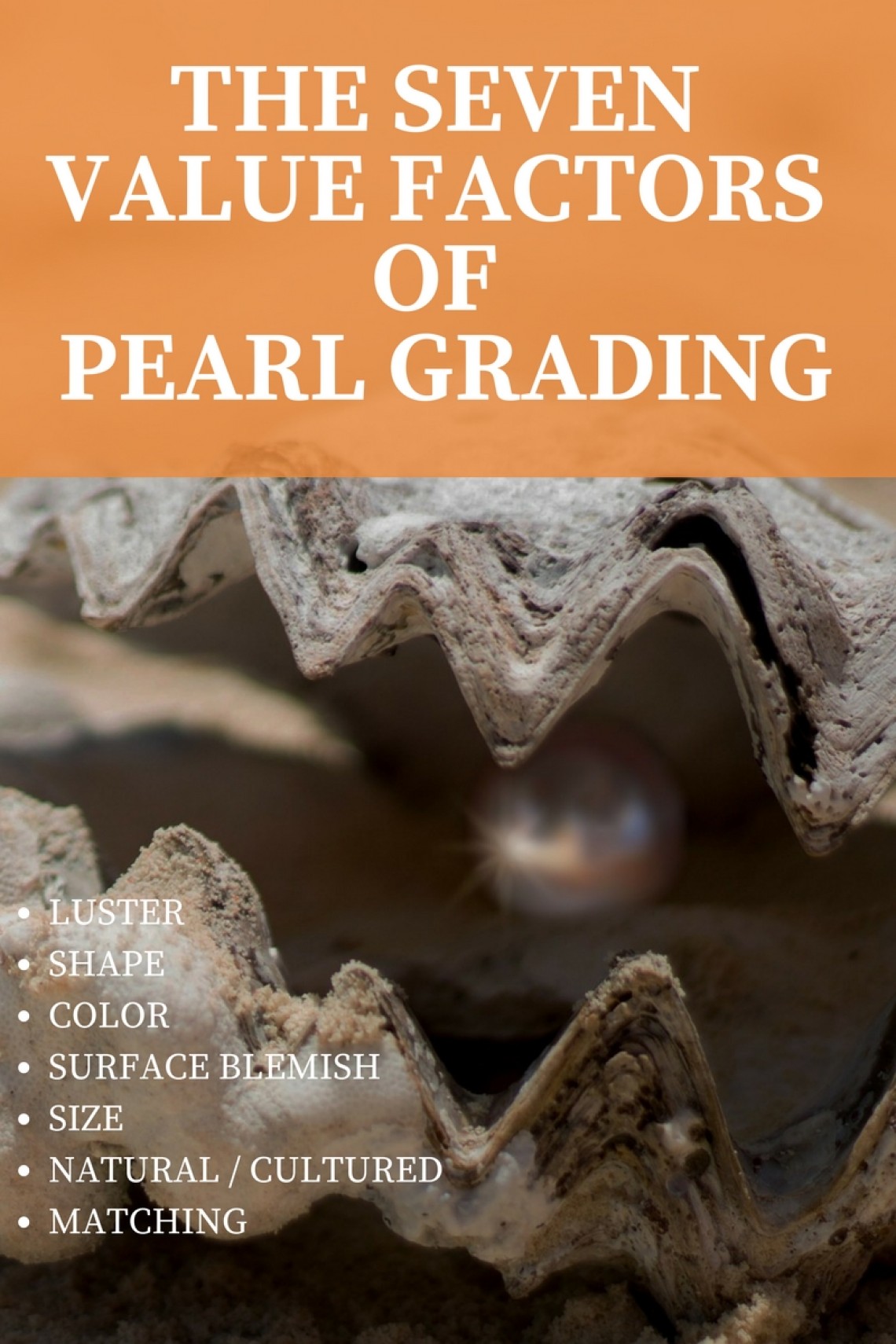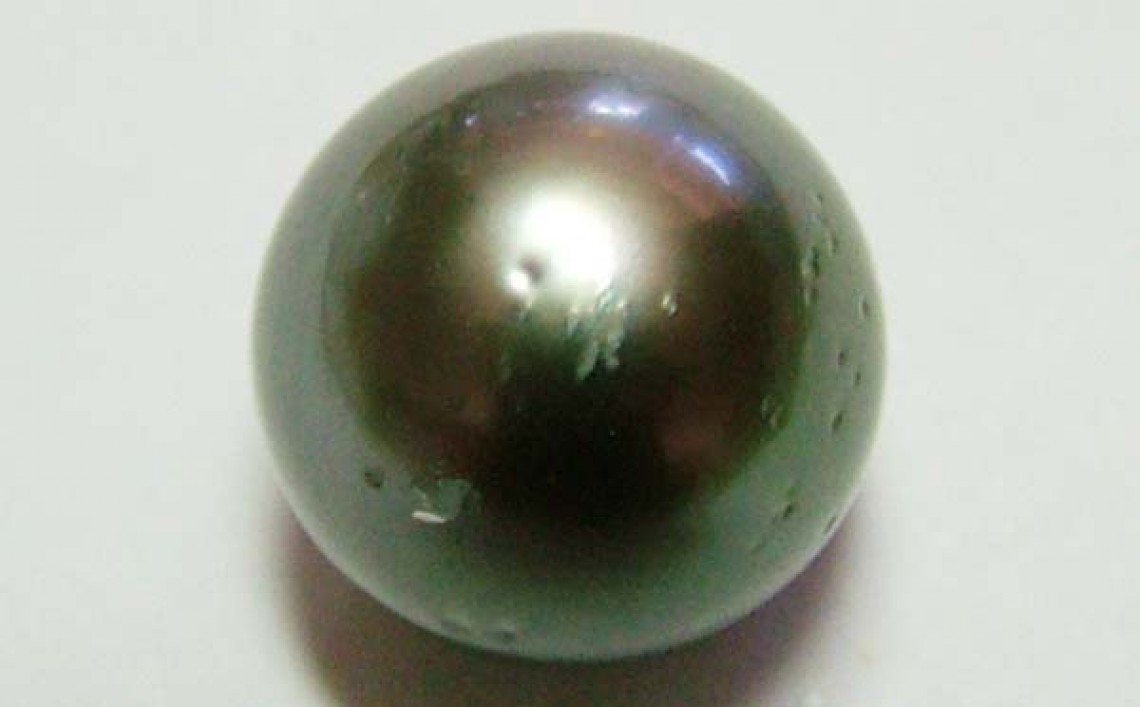
Published at 9th May 2018
Modified at 2nd Aug 2023
Pearl Grades - The Seven Value Factors
 The seven value factors that affect the Pearl grades are complex and take many years to master. Many people don’t know that there are different types of
pearls let alone a way in which to grade them like how we grade diamonds. Pearl
grading is based on a number of different factors and there are a number of
different grading systems for the different types of pearls for example: Akoya
Pearl Grading, Tahitian Pearl Grading, Freshwater Pearl Grading and South Sea
Pearl Grading. So here we are going to look at the different pearl value
factors and what they mean for pearl colour grading.
The seven value factors that affect the Pearl grades are complex and take many years to master. Many people don’t know that there are different types of
pearls let alone a way in which to grade them like how we grade diamonds. Pearl
grading is based on a number of different factors and there are a number of
different grading systems for the different types of pearls for example: Akoya
Pearl Grading, Tahitian Pearl Grading, Freshwater Pearl Grading and South Sea
Pearl Grading. So here we are going to look at the different pearl value
factors and what they mean for pearl colour grading.
The Seven Value Factors
1. Lustre
Lustre is to measure how bright your pearl shines - it is a test of how well the pearl reflects light.
2. Shape
The shape of the pearl is important as the more round it is the more valuable it is. These are rarer than baroque pearls which are irregular and unusual in shape. It can take a Pearl farmer an entire life time to collect a strand of perfectly round Pearls.

3. Color
The color of a pearl is determined by what type of water it
was created in, the oyster that created it and some environmental factors. The
deeper the colour the more rare and more expensive the pearl becomes. Pearls are usually described as having a main color (body color) that is usually white, cream, black, grey and silver. When the Pearls are studied closer, there is evidence of a secondary color that are called overtones. These can be green, blue, purple and pink. Sometimes Pearls will show a rainbow of overtones and this effect is called Orient.

4. Surface Blemishing
The more perfect the outside of the pearl is - without
blemishes or dents the more expensive they are. Having said that there will
always be some sort of blemish as there is no such thing as complete
perfection in the natural world. Even if its not visible to the human eye.

5. Size
In this case the bigger the pearl the better (if your looking for expensive ones).
6. Natural or Cultured
Unfortunately, the majority of the pearls that are available
for purchase have been cultivated and manufactured in some sort of way by
humans. These pearls are of less value to those that have been naturally
produced. Cultured Pearls are usually fresh water pearls that are harvested in China. The farms for these Pearls are enormous.

7. Matching
It says it all in the name, matching is about how well the pearl matches the other pearls in the set. Matching Pearls are hard to find but finding a matching set is even harder. Celebrities will often be seen wearing graded match pearls meaning the colors and shape all match but the Pearls on the front are larger and gradually reduce in size to the back. Just image how long that would take to find.

More On Pearl Color
The color of pearls pretty much covers the whole rainbow spectrum. There are light coloured pearls which are your whites, pinks, creams, silver, golds and light blues. Opposed by the darker pearls that come in greens, purple, chocolate, grey, dark blue. As previously mentioned the color of a pearl is determined by many different factors, one of the main factors is the ‘genetics’ of the mollusk that created it. The current status of the water in which he mollusk lives is also a major contributing factor for example:
- Fresh Water
- Sea Water
- If the water is contaminated
- If the water has a lack of nutrients for whatever reason
The color of a pearl is usually a sort of two tone, with it having a main body of colour and then an overtone of a different colour over the top.
There are many different ways to grade a pearl, having said that there is still quite a lot of dispute between experts as to what makes a perfect pearl. A big part of it is down to human preference.
SHOP FOR PEARLS
Search the Gemstone Encyclopedia
Related Auctions
2 bids
NewRelated Articles
Everyone has a gemstone that corresponds with their star sign. These are also known as your Star Stone. Learn more about these stones and find out what your Star Stone is.
10th May 2018
There are dozens of quartz and chalcedony gems with various colors and patterns. Learn all about quartz properties and every type of quartz, from amethyst and agate to plasma and phantom quartz!
15th Oct 2020
Let us explain how to buy gems on the internet. We have the largest range of gemstones on the internet and it can be a little overwhelming at first. Let us help you with some useful tips.
3rd Oct 2018
Latest Articles
Simpsonite is a lesser-known mineral known on the gem market for its durability, yellow-orange color, and rarity. Discover all the properties, uses, prices, and history of simpsonite.
3rd Mar 2025
Kurnakovite is a colorless crystal related to inderite and rarely faceted but known among collectors. Explore the mineral traits, history, prices, and more in this kurnakovite guide.
17th Feb 2025
Prosopite is an uncommon gemstone known for its rare robin’s egg blue form used for cabochons. Discover the history, benefits, prices, and powers of prosopite gemstones!
3rd Feb 2025
Article Categories
How To's is where you will find helpful articles from gem Rock Auctions on how to cut gemstones, select gemstones and buy gemstones.
9 Articles





